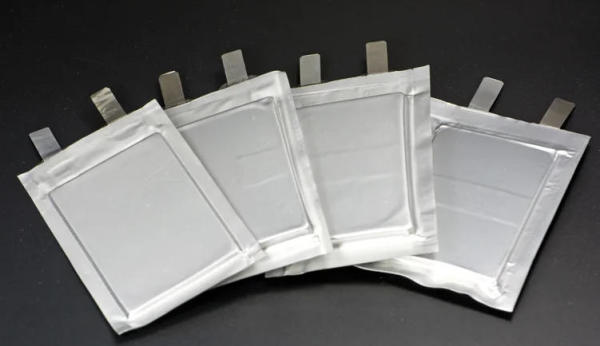[11:18 Sat,11.January 2020 by Thomas Richter] |
Researchers at Monash University in Australia have developed a rechargeable lithium and sulfur battery that is said to be more than four times more efficient than current lithium-ion batteries. New lithium-sulphur batteries, e.g. for mobile devices or electric cars, could thus either provide 4 times more energy than previous batteries (and thus be able to power a smartphone for 5 days) or provide weight savings with the same charge. The other advantages besides the higher charge also sound promising: the new batteries are supposed to be cheaper, can be produced at lower cost and are supposed to be much more environmentally friendly than previous batteries because the toxic cobalt can be dispensed with.  Several prototypes of the new lithium-sulfur battery The team has developed a method that creates bonds between the particles in order to absorb material stresses and achieve a stability that has not been found in any battery so far. The method could also help in the development of The new batteries use the same materials as standard lithium-ion batteries, but use much less valuable lithium and no toxic cobalt. The cathodes now consist of 70% sulphur, 20% carbon and 10% lithium carboxymethyl cellulose (CMC). The researchers have modified the design of the sulfur cathodes so that they can withstand higher loads without sacrificing overall capacity or performance. One problem, however, is that up to now only about 200 charging cycles have been possible without major losses. Although there have been many promising developments of new battery technologies in recent years, these have never reached the production stage. However, the new lithium sulphur is already a step beyond the pure research stage and can soon prove itself in field tests. Prototypes of the battery have already been developed by the Fraunhofer Institute for Material and Beam Technology IWS in Dresden and the research team has received 2.5 million dollars from the Australian government and industrial partners to start trials with the new battery in electric cars and power grids (for storing solar energy). However, even if the tests are successful, mass production and market launch will still take some time - production processes are sluggish and there are still some hurdles to overcome. deutsche Version dieser Seite: Neu entwickelter Lithium-Schwefel-Akku ist viermal leistungsfähiger als Li-Ionen Akkus |





